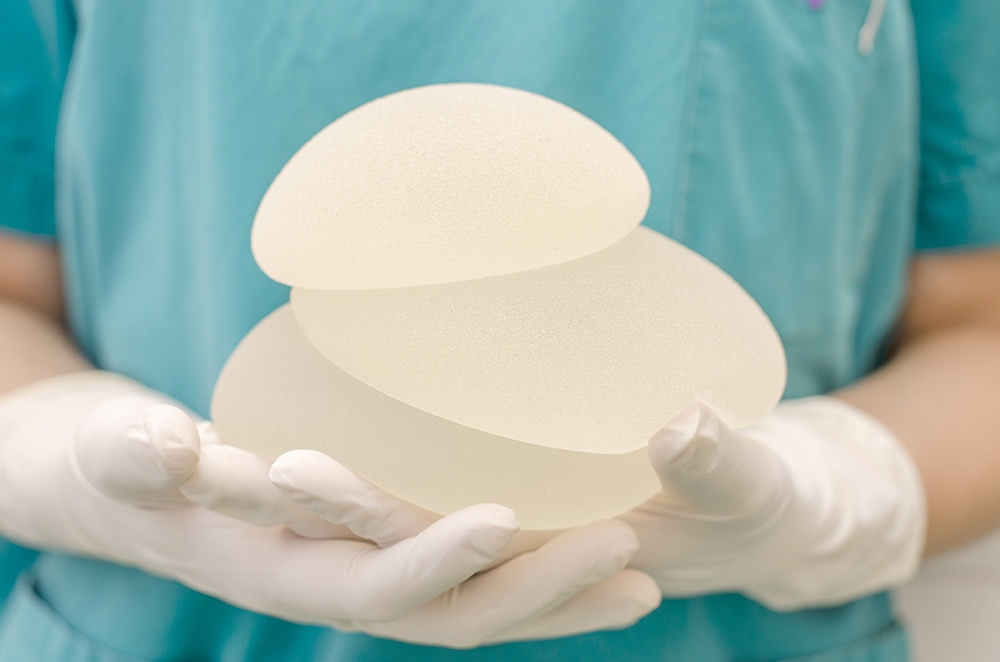
If you are thinking about getting a breast implant exchange, contact our office today. There’s lots of misinformation out there fueling these fears, from stories about implants gone wrong to stories that stir up fears about silicone and cancer.
What’s important to know about modern breast augmentation implants is that they are safe and regulated by the FDA. That said, it’s also important to know that breast implants aren’t ‘perfect,’ nor are they necessarily made to last forever. There is always a small chance of implant ruptures. Sometimes, an implant can rupture soon after the surgery, if it wasn’t positioned properly. In other cases, the implant can rupture years down the line. When this happens, it’s usually after at least a decade because of general wear and tear on the material.
Sometimes, it’s easy to tell that an implant has burst. In other cases, it can be more difficult to spot a rupture. Here’s what to look out for, based on the type of implants you have. You’ll also learm about what to do if one of your implants ruptures.
Saline Implant Ruptures
While silicone implants are the more popular option these days, some women still get saline implants. Saline implants have some advantages over silicone. They’re FDA approved for women over the age of 18 and they can be filled after they are placed in the breasts. That means they often require a smaller incision and can allow for more custom changes to be made to the size of the breasts.
When a saline implant ruptures, it is usually noticeable. In some cases, the rupture is evident immediately, as the saline solution flows out of the implant and into the surrounding tissue. The breast will usually shrink visibly. Following rupture, the saline is absorbed by the body and shouldn’t cause any harm. Even if the saline leaks slowly out of the implant, the breast’s size should eventually change. A few weeks or months after a saline leak occurs, a woman with a ruptured implant might notice that one breast is considerably smaller than the other.
Silicone Implant Ruptures
While saline implant ruptures are usually visible right away, it’s a different story with silicone implant ruptures. If a silicone implant gets a leak or otherwise breaks, it’s often called a ‘silent rupture,’ since there usually aren’t visible signs.
The silicone used in breast implants is typically a thick, viscous gel. It won’t flow or seep like saline. It might leak out a bit into the surrounding breast tissue, but because a fibrous tissue usually surrounds the implant, it won’t get very far. If you have a ruptured silicone implant, you aren’t likely to notice much, if any, changes in the size of the affected breast.
While most silicone implant ruptures are silent, there are times then when the silicone is able to travel away from the breast tissue. If that is the case, a woman might notice bumps or lumps beneath the skin in areas near the breasts, such as under the arms.
Occasionally, the leaked silicone can irritate or inflame the surrounding tissue, causing pain in the breasts. If the rupture goes undetected for a considerable amount of time, there might eventually be a visible change in the size of the breast.
What to Do If an Implant Ruptures
If you suspect that a saline or silicone implant has ruptured, it’s very important to schedule a consultation with your breast surgeon or with a new surgeon. The surgeon will most likely perform imaging to confirm the rupture. Usually, the next step is to remove the damaged implant. If there are other issues that developed as a result of the rupture, such as an infection or irritation, the surgeon will typically treat those at the same time.
Whether you decide to replace the damaged implants or not is normally up to you. Your surgeon might make a recommendation one way or the other, depending on the circumstances of the rupture and the condition of the breast and scar tissue remaining.
While breast implants are safe, things can go wrong from time to time. Choosing a board certified, experienced breast surgeon can help reduce the risk of implant ruptures and other issues. Dr. Paul Vitenas, a board certified surgeon in Houston, Texas, has frequently been recognized as the area’s top surgeon and as one of the top breast surgeons in the country. To learn more about your breast augmentation and implant options, call 281-484-0088 to schedule a consultation today.
